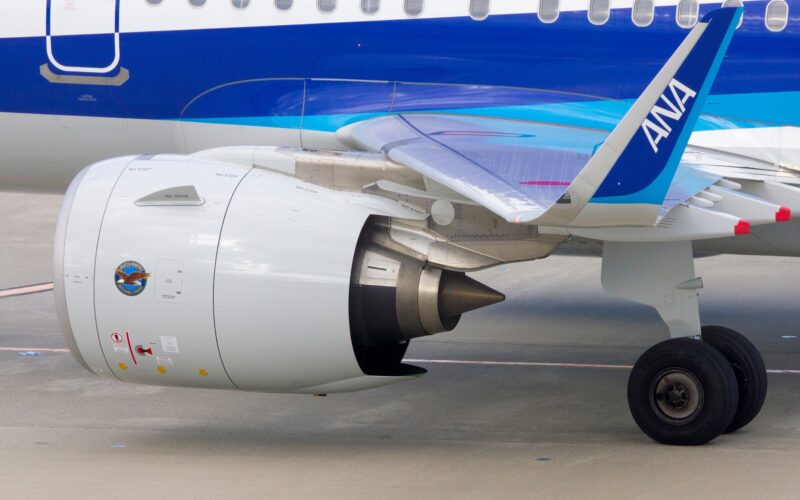Over the past few months, several airlines, including airBaltic, KLM and, infamously, India’s Go First, have publicly claimed their fleets have been negatively affected by availability issues relating to the Pratt & Whitney PW1000G engine.
The engine family, also known as the Geared Turbofan (GTF), has been performing well, at least according to some executives. But the time-on-wing (TOW), measuring operational reliability, and turnaround times (TAT) at Maintenance, Repair, and Overhaul (MRO) organizations have not been up to par, resulting in carriers scrambling for capacity to cover their obligations to passengers.
“The engines are ok, but P&W is falling short of MRO capacity. Actually, the delays have become bigger again in the past three months,” Martin Gauss, the chairman and chief executive officer (CEO) of airBaltic, said during the International Air Transport Association’s (IATA) Annual General Meeting (AGM) in Istanbul, Turkey. While Gauss claimed that the airline, an all-Airbus A220 carrier, would be interested in ordering more aircraft, he noted issues related to the engine would need to be resolved first.
In general, the GTF aircraft engine family powers three aircraft families, namely the Airbus A220 (exclusive engine provider), Airbus A320neo (together with the CFM International LEAP family), and Embraer E2 (exclusive). Before Mitsubishi axed its aircraft project and Russia faced aerospace industry sanctions for its invasion of Ukraine, the engines had also been used to power the SpaceJet and the Irkut MC-21 aircraft, respectively.
According to analysis conducted by Cirium 16.9% of Airbus A220s (46 aircraft) are currently in storage. The number of stored A320neo aircraft family increases slightly to 17.2% (122).
Cirium’s Valuations Analyst, Yiru Zhang, noted that P&W-powered A320neo family aircraft “have higher storage rates when compared to the LEAP-1A fleet”, with the percentage being 13.2% higher. In total, there are 122 stored P&W-powered A320neos, while 41 LEAP-1A-powered aircraft are currently inactive.
Operators of the Embraer E2 family, namely the E190-E2 and E195-E2, have stored two and five aircraft, respectively, representing 9.1% and 8.2% of the total active fleet.
Scrambling for capacity
Since these aircraft are stored during a peak travel period for the Northern Hemisphere, airlines have had to scramble for capacity by either wet leasing aircraft, restoring older jets from storage, or keeping older units in operation.
For example, in March 2023, airBaltic’s Gauss previously said that the P&W engine TAT issues had forced the airline to wet lease up to eight aircraft because the manufacturer could not keep its “promise on the improved turnaround times”.
Meanwhile, KLM’s regional subsidiary, KLM CityHopper, acknowledged issues with “fully deploying the E2” fleet, which resulted in “retaining E190s that were to be returned to lease companies” and signing “several” wet lease agreements.
The most extreme case was India-based low-cost carrier Go First, which blamed the grounding of its P&W-powered fleet for its court-protected bankruptcy. The airline provided an update on June 6, 2023, stating that its flights would remain grounded until June 12, 2023. The carrier ceased operations in early May 2023.
Pratt & Whitney hit back at Go First’s claims that its engines were to blame for its financial misfortune, stating that the airline had a “lengthy history of missing its financial obligations” to the engine maker.
However, as other airlines continued to operate the PW1000G-powered aircraft, they had to turn to Aircraft, Crew, Maintenance, and Insurance (ACMI) providers to minimize flight disruptions.
According to ch-aviation.com data, airBaltic currently has eight aircraft wet leased from other operators, including two Airbus A319, five A320, and one Boeing 737-700 aircraft.
Swiss International Air Lines, which has a fleet of 30 Airbus A220s, leased seven airBaltic A220s, to cover its own obligations to passengers, ch-aviation.com data showed.
Other airlines that have been forced to take up wet lease agreements and ground their P&W-powered aircraft include Air France, which has seven wet leased passenger aircraft, Air Peace, with six wet leased passenger aircraft, and Wizz Air Abu Dhabi, with a single wet leased aircraft from Ukraine’s Sky Up, per ch-aviation.com data.
“More than 50% of the GTF-powered A320neo fleet now has the latest generation hardware [more durable combustor – ed. note], and we anticipate most of the fleet will have the new hardware in the next couple years,” a Pratt & Whitney spokesperson said in an email to AeroTime.

